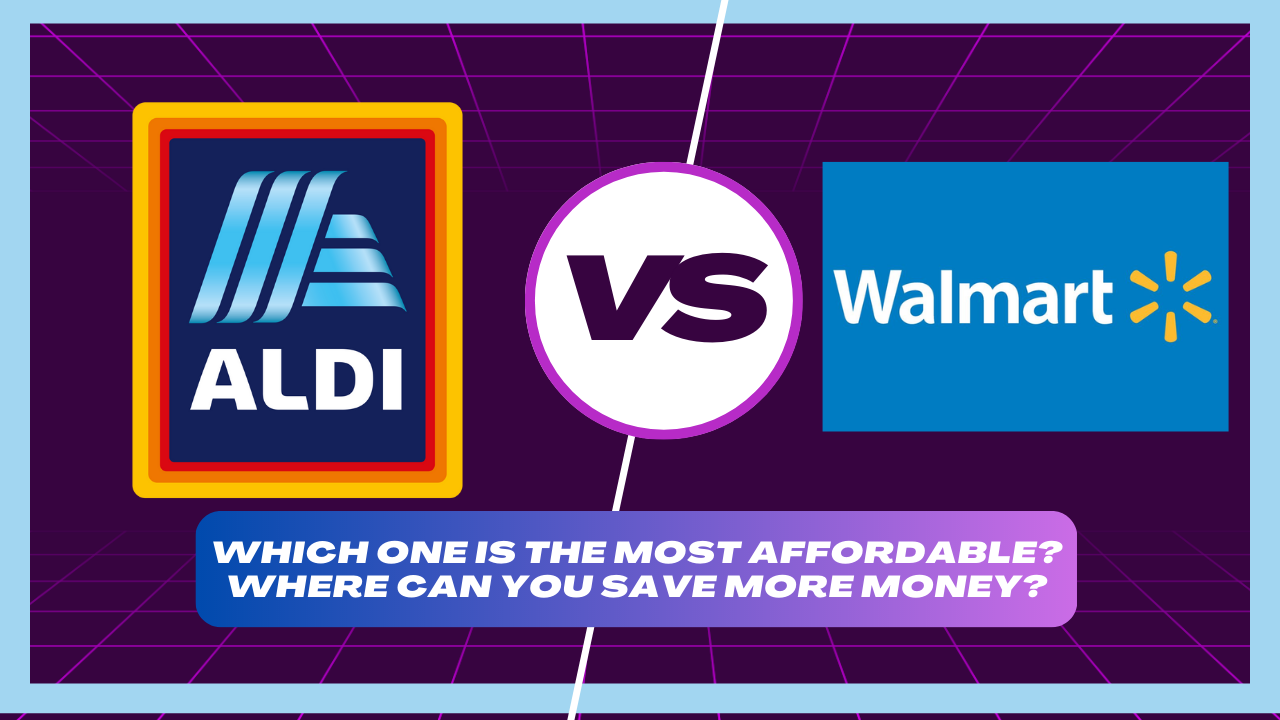In the world of retail giants, two names stand out prominently: Walmart and Aldi. Both chains have their unique approaches to offering products to consumers.
This article aims to delve into the differences between the two, focusing on their pricing strategies and determining which one emerges as the most cost-effective option.
The Rise of Walmart
Walmart’s journey began in 1962, and over the decades, it has grown into a global retail powerhouse. With its “Everyday Low Prices” slogan, Walmart revolutionized the retail industry by offering a vast selection of products at affordable rates. Its large-scale operations, extensive supply chain, and efficient distribution network enabled it to provide consumers with competitive prices.
The Emergence of Aldi
On the other hand, Aldi, founded in 1946, took a different approach. Originating from Germany, Aldi focused on a no-frills shopping experience and a limited range of private-label products. By adopting a lean business model, Aldi aimed to offer products at incredibly low prices while maintaining quality standards.
Product Range and Variety
One of the significant differences between Walmart and Aldi lies in their product range and variety.
- Walmart boasts an extensive selection, ranging from household items to electronics, clothing, groceries, and more.
- On the contrary, Aldi focuses on essential items, primarily its private-label brands, which significantly reduces the variety available.
Pricing Strategies
When it comes to pricing, both Walmart and Aldi adopt unique strategies.
- Walmart’s “Everyday Low Prices” philosophy emphasizes consistency in offering low prices across its products.
- On the other hand, Aldi employs a cost-effective approach by streamlining its operations, maintaining a limited inventory, and encouraging customers to bring their shopping bags.
Shopping Experience
- The shopping experience at Walmart is often characterized by its sprawling stores, numerous aisles, and a vast array of products. It caters to various customer preferences and provides a one-stop shopping destination.
- On the contrary, Aldi’s smaller stores focus on efficiency and quick shopping, leading to reduced shopping time.
Quality of Products
- While Walmart offers a wide range of brands, including its private labels, the quality of products may vary.
- On the other hand, Aldi’s smaller inventory allows it to maintain strict quality control over its private-label items, ensuring consistent quality at lower prices.
Customer Service
- Walmart’s size allows it to invest in extensive customer service resources, with dedicated staff available to assist shoppers throughout their shopping journey.
- Aldi’s model, however, emphasizes self-service and efficiency, with a focus on keeping operational costs low.
Accessibility and Locations
- Walmart’s global presence makes it highly accessible, with stores located in numerous countries, including both urban and rural areas.
- Aldi, although expanding rapidly, may not be as widespread as Walmart, particularly in some regions.
Sustainability Initiatives
In recent years, both Walmart and Aldi have taken steps towards sustainability.
- Walmart has committed to reducing its carbon footprint and promoting sustainable sourcing.
- Aldi, known for its cost-saving measures, also emphasizes environmental consciousness by encouraging recycling and eco-friendly practices.
Loyalty Programs and Rewards
- Walmart offers various loyalty programs, credit cards, and rewards for its customers, enhancing their shopping experience and encouraging repeat business.
- Aldi, being focused on simplicity and cost-effectiveness, does not have a traditional loyalty program.
Online Shopping Experience
- Walmart has invested significantly in its e-commerce platform, providing customers with a wide range of products available for online purchase and delivery.
- Aldi has also started to venture into online shopping but remains more limited compared to Walmart’s offerings.
Comparison: Pros and Cons
To summarize the differences between Walmart and Aldi:
- Walmart has a vast product range and variety, while Aldi offers a limited selection.
- Walmart’s pricing strategy revolves around “Everyday Low Prices,” whereas Aldi focuses on cost-cutting measures.
- Walmart provides a comprehensive shopping experience, while Aldi prioritizes quick and efficient shopping.
- The quality of products at Aldi’s is well-controlled due to its limited inventory, whereas Walmart offers a wide range of brands and products with varying quality.
- Walmart has a more extensive global presence, whereas Aldi may be more limited in certain regions.
Conclusion
In conclusion, the choice between Walmart and Aldi depends on various factors. Walmart caters to shoppers seeking convenience, a wide range of products, and extensive customer service.
On the other hand, Aldi attracts consumers looking for cost-effective options without compromising quality.
Ultimately, both retailers have their strengths, and the decision comes down to individual preferences and shopping needs.
FAQs
- Q: Which is cheaper, Walmart or Aldi? A: Aldi is generally considered cheaper due to its focus on cost-cutting measures and private-label products.
- Q: Does Walmart have a loyalty program? A: Yes, Walmart offers various loyalty programs, credit cards, and rewards for its customers.
- Q: Can I find the same products at both Walmart and Aldi? A: While there may be some overlap, Walmart’s extensive selection means it offers a broader range of products compared to Aldi.
- Q: Is Aldi’s product quality compromised due to its lower prices? A: No, Aldi maintains strict quality control over its private-label items, ensuring consistent quality at lower prices.
- Q: Does Aldi have an online shopping option? A: Yes, Aldi has started to venture into online shopping, but its offerings are more limited compared to Walmart’s online platform.


